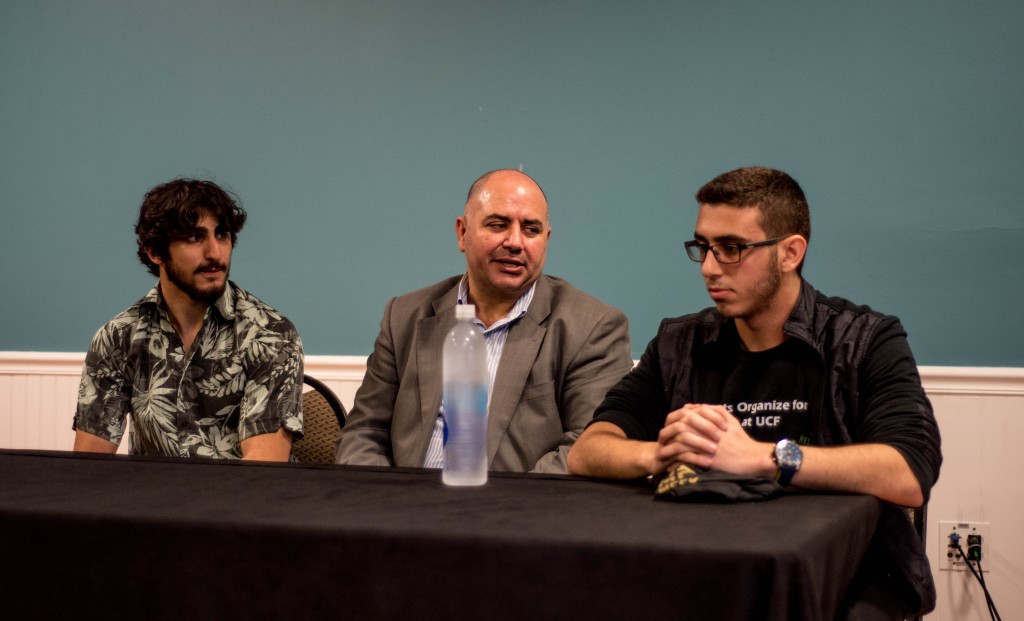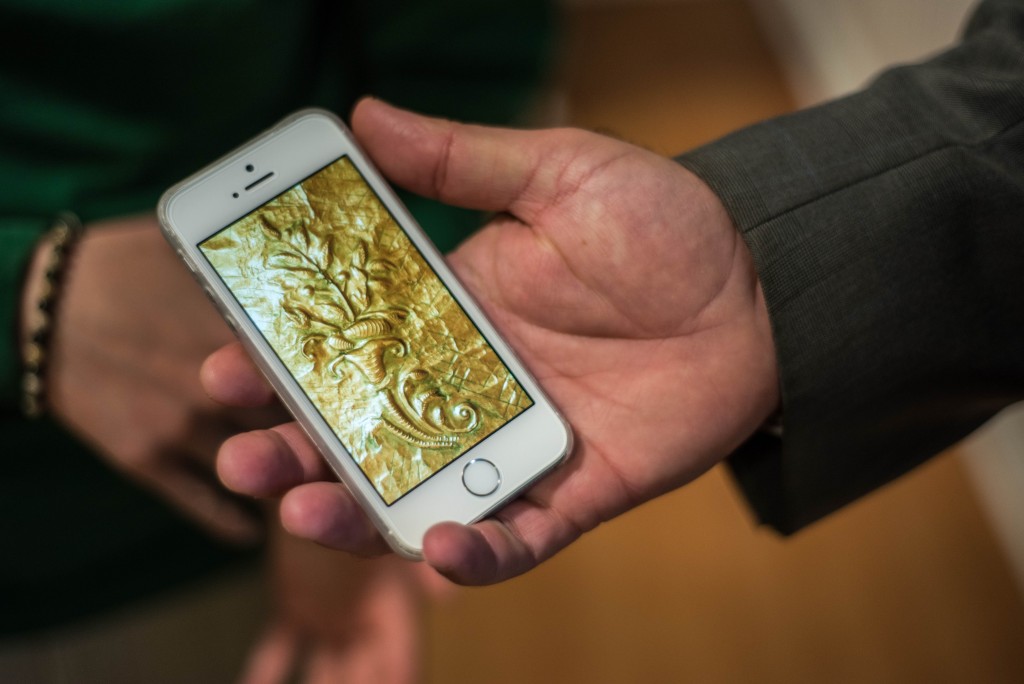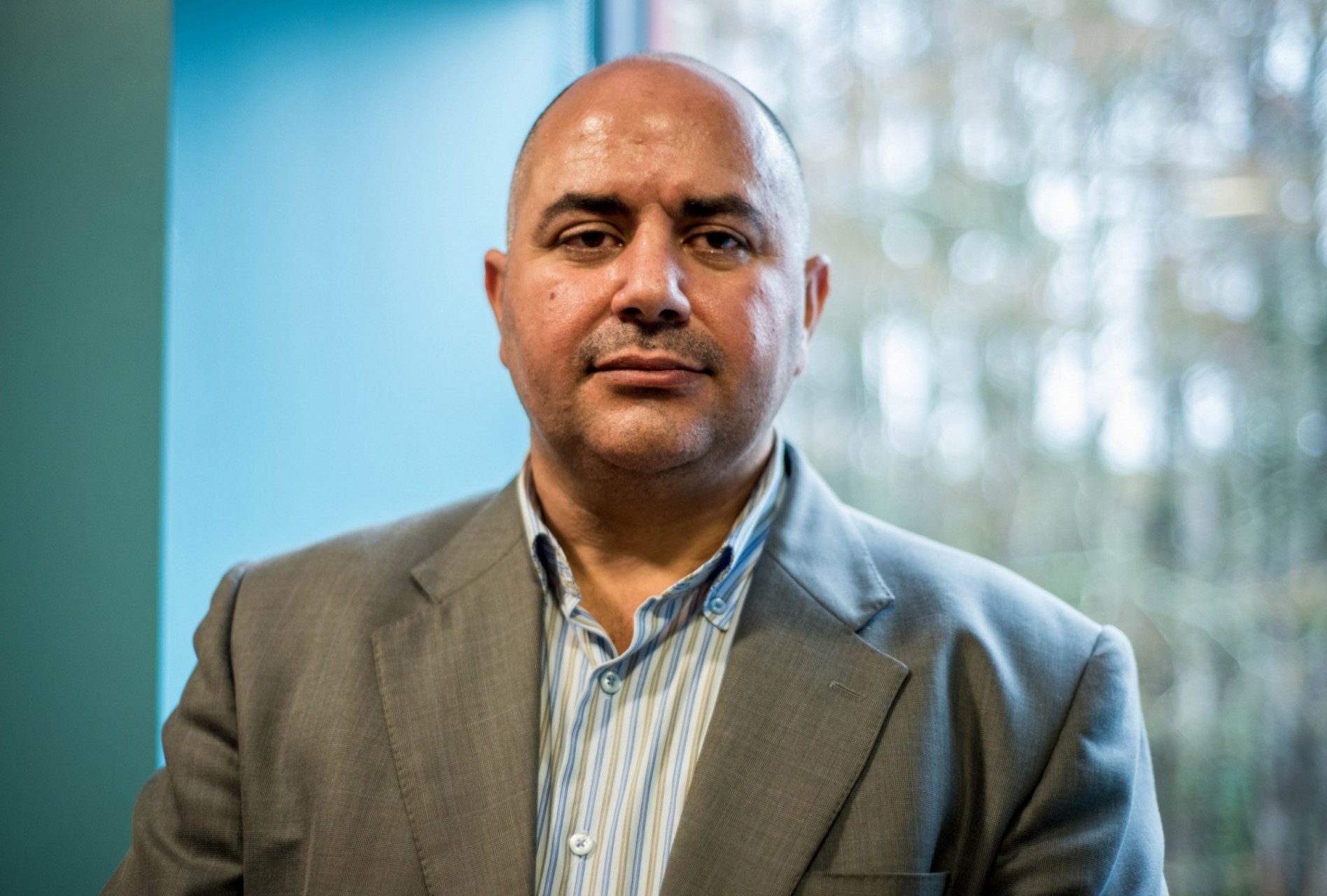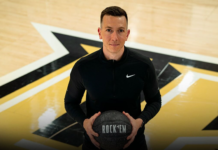A packed room of students, faculty and staff gathered at in the Student Union as part of Social Justice Week co-hosted by UCF’s Social Justice and Advocacy and the UCF chapter of Students Organize for Syria.
“A missile came and destroyed his business and that’s what lead him to Jordan. He ended up moving to Jordan and lived there for three years, and then applied to move to America and has been living here [Sanford] for five months,” said Sammy Katerji. The 20-year-old biomedical major was one of three students translating for Mohamed Yuset, a Syrian Refugee, who came to University of Central Florida Wednesday afternoon to tell of his journey to the United states.

Edwanna Andrews, Director of Social Justice and Advocacy, wanted to provide an opportunity for students and faculty to learn more about the ongoing crisis in Syria, “The reason and the purpose for this event is that there is so much in the news media within the past year in regards to what’s been going on in Syria. A lot of what has been in the news media is contradicting of each other and we wanted to provide an opportunity to really know and learn what truly is happening in Syria.” Andrews went on to say she wanted to help spread the word on “How are people being affected. As well as what are students here on this campus doing to support those in Syria and to support those who come to America.”
“Our [Students Organize for Syria] goal is to spread awareness of the Syrian conflict, the chaos that has been seen on the news and to simplify it to the American audience, to those who don’t really see the news or don’t really know what’s going on over there. So we try to get across the information as best as possible,” said Katerji before the start of the talk.
Yuset, originally from Dar’a, Syria, provided a small introduction about himself and his long journey to the U.S., leaving the remaining time for questions. Attendees were eager to ask questions ranging from: Why did he choose America? What were the screening process like in order to come to the U.S.? How have the American People treated him thus far?
When asked what he thought about the conflict that arose in Syria he provided his opinion about why he believed it had occurred by saying, “Before this whole revolution there was a lot of oppression from the government on its people and that lead to the revolution from the people against the government.”
Questions were answered about the speaker and his family’s stay in one of the refugee camps. Being stationed in a desert in the summers was very hot and hard to live through. Beds were made out of sheet metal. During the rainy season, the camps would flood. Conditions were unsanitary and chaotic; the nearest restroom was over a half an hour walk from camp. There was occasional unrest amongst refugees. Fights would erupt in response to limited food and other resources.
“We were allowed to stay in the camps, but we were not allowed to work. We were not allowed to apply for citizenships and if we wanted to leave the camp and head out into the city we were escorted. After a month I couldn’t take it anymore.” said Yuset. He and his family could not handle the conditions any longer and decided to leave.
Yuset has three daughters, two who live in Saudi Arabia with their husbands, and 2 sons. His two sons along with the other daughter are with him in America. He hopes to have his entire family one day reunited in the U.S.
Yuset had the opportunity to apply to live in the U.S. and, after some time and a very thorough screening process, he was granted permission. He expressed his gratitude with how helpful many Americans have been, from helping him get his Social Security and other IDs to helping him go to the supermarket. Now, he is tackling English classes.

Throughout his lifetime, Yuset has found a creative release through art, working on sculptures, ceramics and mosaics. With his move to the U.S., he has had a new opportunity to work on these passions a bit more. When asked about his artwork, Yuset’s demeanor changed, his eyes lit up quickly as he pulled out an iPhone to share photos of his recent work. With time, Yuset expressed hopes to one day show off his pieces at a local art festival in Central Florida.
Should things change in Syria and become safer, Yuset expressed his desire to one-day return to his home country. However, he knows such a scenario is unlikely and is happy to stay in the U.S. for as long as he can.
Students Organize for Syria will be holding other events throughout the year; for more Information about those events, you can follow their Facebook page. Social Justice Week will continue with Tunnel of Oppression event held from 10 a.m .to 5 p.m. on Friday, Jan. 29, 2016 in the Pegasus ballroom in the Student Union.







